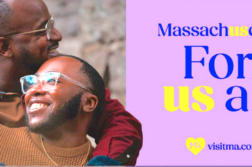THE January inauguration of President Barack Obama saw unprecedented levels of GLBT participation. With hope in the air, expectations for forward movement on civil rights ran high. But the Obama transition sent mixed signals, leading some to question prospects for follow-through on promises made to the GLBT community. A parallel development, a national resurgence in gay activism following passage of Proposition 8, presaged realistic hope for change, provided people answer President Obama’s call to civic engagement.
Obama’s invitation to fundamentalist Rev. Rick Warren to deliver the inaugural invocation fueled anxieties about whether the coming change would fully encompass same-sex civil rights. Warren was a vocal supporter of the deceptive Pro-8 campaign in California and publicly compared gay and lesbian relationships to incest and polygamy. A decision to invite openly gay Episcopal Bishop Gene Robinson to deliver the invocation at the “We Are One” concert on January 18 palliated some of the sting of the Warren invitation. But then a new controversy erupted when HBO, which had exclusive broadcast rights to the concert, failed to televise Robinson’s prayer. HBO and the Presidential Inaugural Committee pointed fingers at each other over the omission. The participation of a lesbian and gay marching band in the Inaugural Parade went virtually unnoticed, with both CNN and MSNBC switching to commercials as the band passed the reviewing stand. On the other hand, the President mentioned the word “gay” in several speeches.
Apart from the symbolism, more substantive concerns related to whether the new administration would push GLBT civil rights to a back burner in the interest of national unity. On the plus side, the inauguration included an emphasis on national service and celebrated historical grassroots efforts that challenged America to live up to the promise of its ideals. The abolitionist movement of the 19th century and the Civil Rights movement of the 20th were hailed as examples of citizen activism that made Obama’s presidency possible.
GLBT people should answer Obama’s call to service enthusiastically. Individuals should consider steps they can take, by volunteering time or donating money to fight hate crimes, to build support for employment non-discrimination, to promote marriage equality, and to end exclusion in the military. Join a gay rights organization. E-mail the President; write senators and representatives. Attend a rally for equality. As Gandhi said, you must be the change you wish to see in the world.
With a community organizer as president, opportunities to shape public policy through citizen action have never been greater. GLBT people can serve their country by taking part in the most important civil rights struggle of the new century. The Obama Administration should be on notice that we will be forcefully engaged as issues of equality compete for its attention in the days ahead.
Don Gorton is chair of Boston’s Gay & Lesbian Anti-Violence Project.




